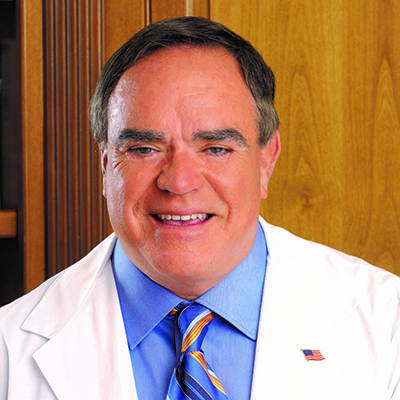Can Berberine Help Support Blood Sugar Health?

If you’re concerned about your blood sugar, you’re not alone. The CDC (Centers for Disease Control and Prevention) reports that half of the adults in the US, some 133 million people, have blood sugar imbalances—and that number is growing.
As a nation, we’re headed in a dangerous direction. More than 73% of adults are overweight, and 42% are obese. Fewer than a quarter of Americans meet the minimum recommendations for physical activity. Plus, more than half of the calories in the average diet are from ultra-processed foods. All these factors are closely linked with blood sugar imbalances.
What’s the solution? You must exercise, reduce sugars and refined carbohydrates, and maintain a healthy weight. But you might not know there’s a powerful “secret weapon” for supporting healthy blood sugar. It’s a supplement called berberine—a real game-changer not only for blood sugar health but also for supporting healthy cholesterol, triglycerides, and even liver health.
What Is Berberine?
Berberine is a phytonutrient abundant in various plants, including goldenseal, Oregon grape, and barberry. Berberine-rich plants have long had a prominent place in the traditional herbal practices of China, India, and other areas.
Yet, the blood sugar benefits of berberine didn’t come to light until the late 1980s, when researchers evaluating berberine made the serendipitous discovery that it had a positive effect on blood sugar. Then, 20 years later, berberine began capturing attention in the US with the publication of a small clinical trial in an American medical journal.
Today, berberine, backed by numerous clinical studies, is an effective supplement for supporting normal blood sugar levels. Plus, further research has uncovered its powerful supportive role in liver health.
The Research on Berberine Is Extremely Impressive
In a comprehensive 2021 meta-analysis, researchers reviewed all the available studies and analyzed the results of the 46 randomized controlled clinical trials. These studies, which involved more than 4,000 participants and lasted from four weeks to six months, tested the effects of berberine (average daily dose of 1,000–1,500 mg) on markers of blood sugar metabolism.
The researchers concluded that berberine had significant blood sugar benefits overall.
How You Can Benefit from Berberine
Herbal supplements such as goldenseal, Oregon grape, and other natural sources of this phytonutrient contain some berberine, but for optimal results, you should take berberine hydrochloride.
This is the standardized form of berberine validated by clinical results. The dosage shown to be most effective for supporting regular blood sugar is 500 mg, taken before meals three times a day for a total daily dose of 1,500 mg.
I recommend taking berberine with other well-studied nutrients for maximum support for blood sugar support. These include chromium, a trace mineral involved in glucose and lipid metabolism; cinnamon; and banaba leaf, an herbal extract that supports healthy blood sugar. Suggested daily doses are chromium 400 mcg, cinnamon 200 mg, and banaba leaf 48 mg.
The Bottom Line
Although research on berberine has skyrocketed over the past decade, many people who could benefit from this versatile therapy don’t know about it.
Berberine should be at the top of your list if you are looking for a supplement to help support healthy blood sugar. It is supported by solid scientific research, safe and well-tolerated, and provides broad benefits that may enhance your overall health.
References:
- Centers for Disease Control and Prevention. Obesity and Overweight. https://www.cdc.gov/nchs/fastats/obesity-overweight.htm. Accessed Sept. 9, 2022.
- Elgaddal N, et al. Physical activity among adults aged 18 and over: United States, 2020. NCHS Data Brief, no 443. Hyattsville, MD: National Center for Health Statistics. 2022. doi: https://www.cdc.gov/nchs/data/databriefs/db443.pdf.
- Filippa Juul, et al. Ultra-processed food consumption among US adults from 2001 to 2018. Am J Clin Nutr. 2022;115(1):211-221. doi: 10.1093/ajcn/nqab305.
- Neag MA, et al. Berberine: Botanical Occurrence, Traditional Uses, Extraction Methods, and Relevance in Cardiovascular, Metabolic, Hepatic, and Renal Disorders. Front Pharmacol. 2018 Aug 21;9:557. doi: 10.3389/fphar.2018.00557.
- Yin J, et al. Efficacy of berberine […..]. Metabolism. 2008 May;57(5):712-7. doi: 10.1016/j.metabol.2008.01.013.
- Guo J, et al. The Effect of Berberine on Metabolic Profiles […….]: A Systematic Review and Meta-Analysis of Randomized Controlled Trials. Oxid Med Cell Longev. 2021 Dec 15;2021:2074610. doi: 10.1155/2021/2074610.
DISCLAIMER:This Wellness Hub does not intend to provide diagnosis...
















































































 Table of Contents
Table of Contents
















